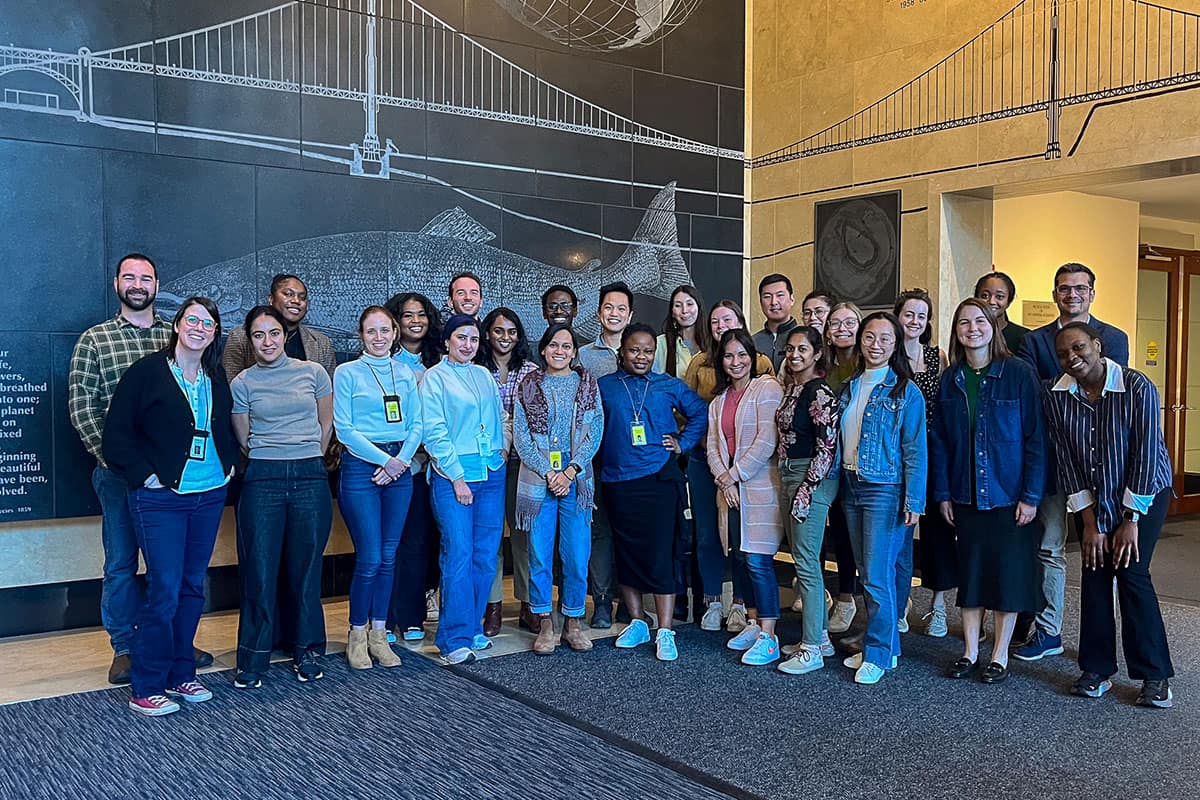High-Profile Washington Fellowship Helps Embry-Riddle Professor Explore Critical Space Policy Questions

Dr. David Canales Garcia, assistant professor in Embry-Riddle Aeronautical University’s Department of Aerospace Engineering, expanded his expertise in space science this year by going beyond his usual research and delving deeply into the world of policy.
Canales joined 21 science and engineering colleagues for the selective Christine Mirzayan Science and Technology Policy Fellowship Program, a 12-week program in Washington, D.C. that began in March.
During the fellowship, Canales collaborated with the Space Studies Board of the National Academy of Sciences. He said the program equipped him with essential insights to support the National Academies’ mission of delivering expert advice to those who make policy.
“A lot of policy is not informed by science or engineering,” Canales said. “The National Academies play a vital role by offering expert, evidence-based recommendations on the most pressing issues of our time.”
Dr. Colleen Hartman, director of the Space Studies Board and the Aeronautics and Space Engineering Board for the National Academies, lauded Canales’ contribution to this year’s program.
“When David joined me as a Mirzayan Fellow at the National Academies, he brought an infectious blend of scientific rigor, fresh curiosity, ideas and boundless enthusiasm,” Hartman said. “David immersed himself in science policy — eagerly bridging technical insights with real-world decision-making. His ability to translate complex technical issues into clear, policy-focused narratives elevated both our team and the broader Mirzayan cohort.”

Canales and his dog, Frosty, enjoyed an outing with Mirzayan fellows at Shenandoah National Park in the Blue Ridge Mountains of Virginia. (Photo: David Canales Garcia)
As a professor, researcher and the director of the Space Trajectories and Applications Research (STAR) group at Embry-Riddle, Canales has shepherded an impressive number of students toward publication in peer-reviewed journals. Since its founding in 2022, the STAR group has published more than eleven papers in top-tier journals.
Canales said the fellowship program will further advance his mentorship of Embry-Riddle students.
“I acquired a broader view of space science in general,” he said, adding that one of his Ph.D. student researchers, Annika Anderson, has now expressed interest in space policy and is exploring ways to integrate it into her research. “This fellowship equipped me with the know-how to guide my students in that domain.”
Canales and his team are now expanding their research to address the policy and regulatory challenges of operating in cislunar space — the region between Earth and the moon that is becoming increasingly active with government, commercial and international missions. Their work explores topics such as how to manage space traffic, reduce the risk of collisions and develop zoning strategies to organize space activity in a safe and sustainable way.
“Our goal is to become a go-to source for expert guidance on cislunar operations,” Canales said.
Dr. Anouck Girard, chair of the Aerospace Engineering Department, called Canales’ fellowship “a well-deserved recognition of his talent and drive, and a testament to his outstanding potential and passion for making a real impact in the world of science and technology policy.”
Canales heard about the fellowship after becoming Embry-Riddle’s representative to the Universities Space Research Association, founded under the auspices of the National Academy of Sciences. That role sparked his interest in space policy, eventually leading him to the fellowship, where he worked on projects ranging from particle physics to lunar and Mars exploration.
Through activities organized by fellowship director Alison Boland-Reeves, he and the other fellows gained firsthand insight into how science connects to advocacy, federal budgets and diplomacy, deepening their understanding of how researchers can influence the future of space exploration.
Canales said that the fellowship also helped him connect with officials at NASA, industry representatives and other experts in the aerospace field. Such connections, plus the knowledge he acquired during the program, will help his lab’s research proposals to stand out, he said.
Hartman said that Canales made strong connections with others at the fellowship events.
“David consistently impressed some of the most revered names in physics, Earth sciences, astronomy, planetary protection and more,” she said.

 Michaela Jarvis
Michaela Jarvis